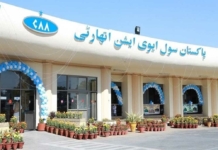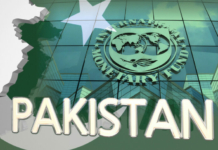Standard Operating Procedures (SOPs) including wearing face masks, following social distancing and guidelines for prayer and qurbani have been announced by the National Command and Operations Centre (NCOC) for the upcoming Eid-ul-Azha in wake of rising COVID cases.
In the last 24 hours, Pakistan witnessed 653 new coronavirus cases with 3.45 percent positivity ratio. A total of 162 patients have been reported to be on intensive care during the last 24 hours.
According to the NIH’s data available on July 5, 18,950 total tests were conducted in the country whereas no death was reported.
Surprisingly, the positivity in Karachi dropped down to 7.92 percent from 20.61 percent yesterday, showing a major decrease in the spread of the virus whereas 435 new cases were identified. The overall positivity rate of Pakistan also dropped from 4.5 percent to 3.45 percent in 24 hours.
A notification issued by NCOC has stated that Eid-ul-Azha and Qurbani have great importance, therefore, under the current situation of COVID in the country, guidelines have been announced.
The SOPs include offering Eid prayers in open spaces under stringent COVID protocols including no physical contact, keeping the sermons short, not entering the mosques without masks on, performing ablution at home and bringing own prayer mats as well as keeping doors and windows of mosques open.
People have also been directed to opt for collective qurbani through different organizations. Arrangement of slaughtering sites to be made at a distance from residential areas and avoiding large gatherings there has also been listed among SOPs.
The Punjab health secretary has also restricted entry into cattle markets after strict adherence of masks. The health secretary has directed the markets’ management to provide masks and sanitizers to people.
He further stated that the COVID vaccination of children above 11 years was mandatory.








Comments are closed.